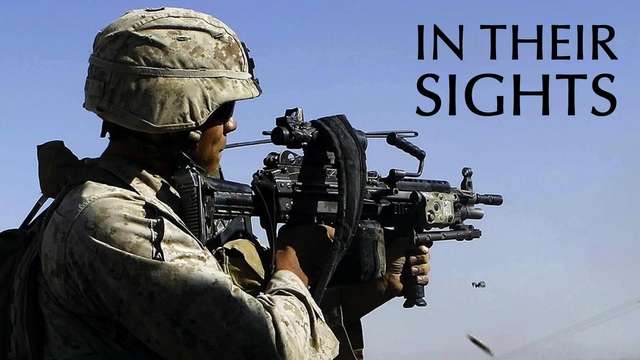The 'kill-capture' campaign is one of the most controversial and secretive strategies of the Afghan conflict. This year alone 11,000 insurgents have been killed or captured. Its proponents claim that it has been successful, but several missions have gone horribly wrong, killing local leaders and civilians. This doc investigates how the covert strategy was developed, how it is being implemented and asks the question: is it doing more harm than good?
"Oh fuck!", a soldier shouts as a deadly accurate sniper round narrowly misses him.
"Fire back", his commander shouts at him and a round is quickly dispatched.
"The enemy is here fighting us hard," Lt. Col. Kenneth Mintz tells us. 'Kill-capture' is their way of hitting back. The program is massive and increasing. The strategy is to force the insurgents to the negotiating table by taking out suspected Taliban leaders through violent special-operative raids.
But while the program has been lauded and expanded, its critics have also begun to mount.
"We are not going to defeat these people militarily. We don't have the viable Afghan political partner, or the time", David Kilcullen, a counter-insurgency expert, tells us.
Killing the established leadership has led to a new generation of younger, even more radical insurgents and when the raids go wrong the Afghan people are further alienated.
"I know of cases where they've picked up someone who is trying to promote reconciliation. There are many cases where mistakes have been made", Kate Clarke from the Afghan Analyst Network tells us. In the case of Rozi Khan the army accidently killed a friendly police chief, only to see him replaced by a brutal warlord with a long list of allegations against him.
Each raid is only as good as the intelligence it's based on. Evidence shows that in a number of cases the intelligence is not reliable and in others it appears coalition forces have been manipulated by their Afghan allies into settling old scores and killing tribal rivals. As a result, families are divided and devastated, and local populations become alienated and angry, leading some into the arms of the Taliban.
Worst of all, the Taliban don't seem to be suffering sufficiently from the campaign.
"The level of pressure on the Taliban that this kill-capture has achieved, frankly, is something that they can live with," Michael Semple, an expert on the Afghan tribes, tell us.
"They'll wait it out in the expectation that they can overwhelm the government after the withdrawal of Western forces."
After a decade of war in Afghanistan, this shocking doc offers powerful access to those still in the firing line and a remarkable insight into the coalition tactics that have divided international opinion.
LEARN MORE.
WATCH MORE.
JOIN THE DISCUSSION.
 The 'kill-capture' campaign is one of the most controversial and secretive strategies of the Afghan conflict. This year alone 11,000 insurgents have been killed or captured. Its proponents claim that it has been successful, but several missions have gone horribly wrong, killing local leaders and civilians. This doc investigates how the covert strategy was developed, how it is being implemented and asks the question: is it doing more harm than good?
The 'kill-capture' campaign is one of the most controversial and secretive strategies of the Afghan conflict. This year alone 11,000 insurgents have been killed or captured. Its proponents claim that it has been successful, but several missions have gone horribly wrong, killing local leaders and civilians. This doc investigates how the covert strategy was developed, how it is being implemented and asks the question: is it doing more harm than good?


